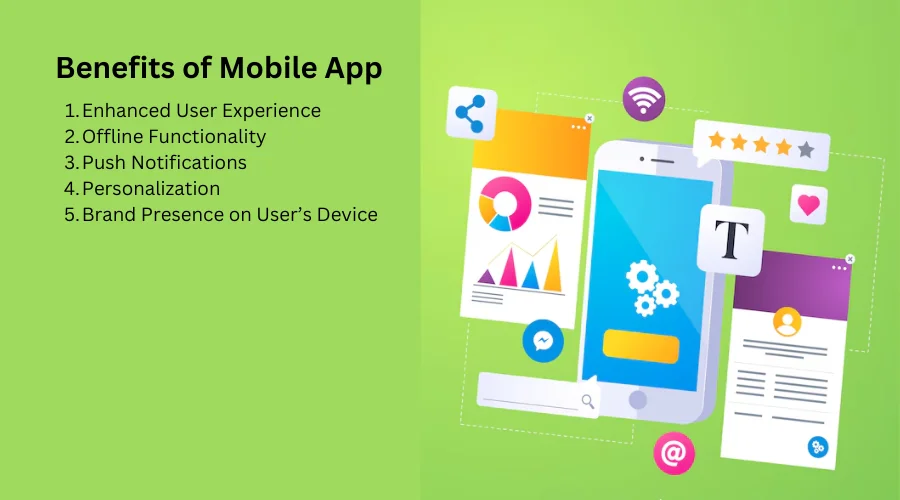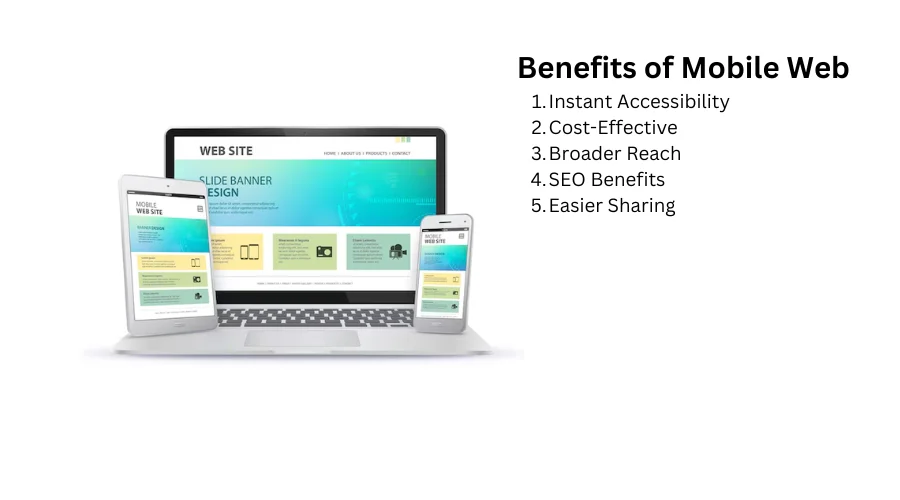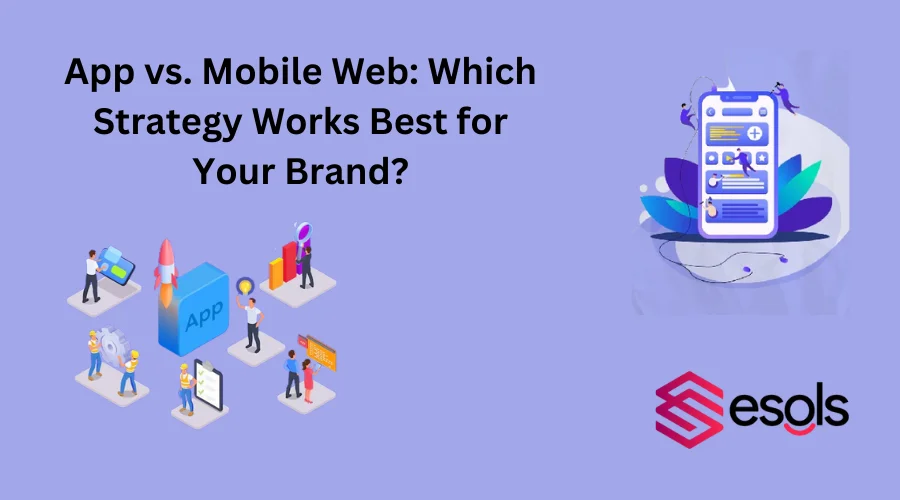Table of contents
With mobile usage on the rise, brands are continuously evaluating the “App vs Mobile Web: Which Strategy Works Best for Your Brand?” dilemma. Both a mobile app and an optimized mobile website offer unique benefits, but choosing the right option depends on your brand’s goals, audience, and resources. In this guide, we’ll explore the pros and cons of each approach to help you decide which strategy best suits your brand.
Why Mobile Matters
Mobile access is now a critical channel for reaching consumers. More people are browsing, shopping, and interacting on their smartphones than ever. For brands, this means that mobile optimization, whether through an app or a mobile web experience, can increase engagement, improve user experience, and ultimately boost conversions.
Mobile Apps vs. Mobile Web: An Overview
Let’s break down the core differences between mobile apps and mobile websites.
| Feature | Mobile App | Mobile Website |
| Accessibility | Download required; accessed via icon | Accessible via any mobile browser; no download |
| User Engagement | Higher engagement with push notifications | Lower engagement but quick, convenient access |
| Offline Access | Available (for some features) | Limited; requires an internet connection |
| Customization | High; tailored to user preferences | Limited to web browsing customization |
| Cost & Maintenance | Higher development and maintenance costs | Lower costs; easier to update |
Benefits of a Mobile App

- Enhanced User Experience
Apps are designed for a specific purpose, giving brands the ability to create tailored, streamlined experiences. With an app, users get a more responsive and engaging experience.
- Offline Functionality
Unlike websites, apps can store some information offline, which allows users to access parts of the app even without an internet connection. This is ideal for brands offering continuous services or products that don’t need real-time updates.
- Push Notifications
Apps can send instant alerts directly to users, making them a powerful tool for engagement. Push notifications are great for reminding users about offers, updates, or important information without requiring them to open the app.
- Personalization
Apps can track and store user data, making it easier to personalize content and recommendations. This personalized approach helps enhance user loyalty and satisfaction, boosting the chance of repeat visits and interactions.
- Brand Presence on User’s Device
When your app is downloaded, your brand icon appears on the user’s home screen, increasing visibility and accessibility. This visual presence keeps your brand top-of-mind and encourages frequent interactions.
Benefits of a Mobile Website

- Instant Accessibility
A mobile website is accessible through any mobile browser, eliminating the need to download or install anything. Users can simply type in the web address and access your brand in seconds, which makes it ideal for first-time visitors.
- Cost-Effective
Mobile websites are generally cheaper to develop and maintain than apps. Updates can be made easily and rolled out to all users instantly, ensuring everyone has access to the latest content and features without needing to download an update.
- Broader Reach
Unlike apps that need to be compatible with specific devices, mobile websites are accessible on all platforms, including desktops and tablets. This increases your potential reach and caters to a wider audience.
- SEO Benefits
A mobile website can be optimized for search engines, increasing your brand’s visibility in search results. People searching for your products or services online will be more likely to find you through an optimized mobile website.
- Easier Sharing
Mobile websites are easy to share, as users can copy the link and send it to others through messaging, email, or social media. This makes it ideal for campaigns that rely on social sharing to increase brand awareness.
Making the Right Choice for Your Brand
The choice between a mobile app and a mobile website depends largely on your brand’s goals and the needs of your audience. Here are a few final questions to consider:
- How often will users need to interact with your brand? Apps are better for high-frequency interactions, while websites suit occasional use.
- Is budget a constraint? If yes, a mobile website is generally more budget-friendly.
- Does your brand rely on personalization? Apps offer more personalization features, which can boost engagement and loyalty.
- What level of discoverability do you need? A mobile website can improve search visibility, making it easier for potential customers to find your brand online.
Conclusion
Choosing between a mobile app and a mobile website is a significant decision in the debate of “App vs Mobile Web: Which Strategy Works Best for Your Brand?” Both options offer unique benefits: apps excel in user engagement and personalization, while mobile websites provide broader accessibility and SEO advantages. By assessing your goals, budget, and audience preferences, you can determine which approach will deliver the best results for your brand.
Read More: How Digital Marketing Helped Donald Trump Win the 2024 Election
FAQs
For many brands, it’s beneficial to start with a mobile website and consider an app if there’s a demand for higher engagement.
Mobile websites are generally cheaper to develop and maintain than mobile apps.
Apps can send direct messages to users’ devices, keeping them engaged with reminders, updates, or promotions.
While mobile websites are improving in interactivity, apps still offer a more seamless, engaging experience.


